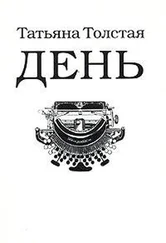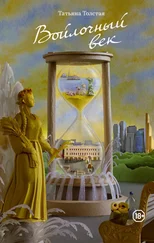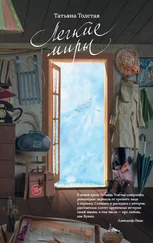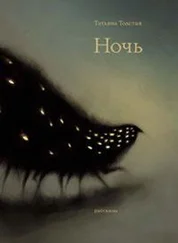And he really did die on March 29, “with great joy,” according to his household staff.
Three wishes are usually granted a hero, according to fairy-tale convention, and he foolishly wastes them. So it was with our professor of mineralogy and anatomy, philosophy and chemistry, geology and mathematics, the soothsayer and medium. He was granted a gift both extraordinary and unheard of, and how did he use his miraculous powers? Helping out a widow missing a receipt, acting as a messenger for the queen, expressing anxiety about a fire. And who should care about a fire when two years earlier the Day of Judgment had come, bringing with it new heavens and a new earth? At that point let it all burn, wouldn’t you say? But no. He kept it civilized, polite, careful, bland. “I received a letter stating that in two months no more than four of my books were sold, and this was conveyed to the angels. They were surprised.”
How unmysterious.
But then, what should we expect? What should we want to have happened? And how? There is a saying: “Why is it that when I speak to God, it’s a prayer, and when God speaks to me, it’s schizophrenia?” But what if schizophrenia is truly one of the ways God or his messengers use to communicate with us? Epileptics before a seizure can, for an instant, perceive the meaning of everything, the mystery of Creation is open to them—but then the seizure wipes out any memory of this new knowledge, leaving the epileptic with nothing but wet pants and a bitten tongue. Autistic people can see mathematical fields where giant numbers and square roots grow like beautiful flowers. Convulsions of the temporal lobe bring about visions of cities in the sky—magical four-cornered fortresses—but how do we know they are not real? What if they’re actually there, but to see them one needs to have a seizure? The human body is only one side of the coin, but as we know, one-sided coins don’t exist. There is always a reverse, and ours is the spirit.
Perhaps Emanuel Swedenborg, a kind, hardworking man, was privy to these otherworldly mysteries, revealed according to his abilities, his understanding, and his inquiries. Maybe they’ll be opened up to another person in a different way: to an anxious one, they’ll appear as fiery squares; to an innocent, as still waters; to an angry person, as ripped spirals. In the Lord’s house there are many mansions; He decides, He bestows, He embraces.
Shulgin often stopped by his neighbor’s apartment to play backgammon—at least once a week, sometimes twice.
It’s a simple game, not as sophisticated as chess, but engrossing nonetheless. At first Shulgin was a bit embarrassed about that, as far as he was concerned only the Kebabs played backgammon—shesh-besh, lavash-shashlik—but then he got used to it. His neighbor Valery Frolov was a purebred Slav, not some fruit vendor.
They’d brew coffee nice and proper, just like the intelligentsia: in a Turkish cezve, letting it simmer so the foam would curl as it rose. They’d repair to the playing board. They’d chat.
“You think they’ll impeach Kasyanov?”
“They might.”
With each visit, Shulgin would notice yet another new item in Frolov’s apartment. An electric tea kettle. Barbecue skewers, one set. A cordless phone in the shape of a woman’s shoe, red. A jumbo grandfather clock, Gzhel ceramic. Beautiful but useless things. The clock, for instance, took up half the room but didn’t work.
Shulgin would ask: “Is that new?”
And Frolov: “Yeah… I mean…”
Shulgin would remark: “Wasn’t your TV smaller last time?”
And Frolov: “It’s just a TV, nothing special.”
Once, an entire corner of Frolov’s living room was littered with cardboard boxes. While his friend was making more coffee, Shulgin peeled one of the boxes open to peek: seemed to be ladies’ clothing, pleather.
And then on Tuesday he looked around and, bam, right where a cupboard used to be there was now an archway leading to a new room. There had never been a room there before. And there couldn’t have been—the building didn’t extend that far. Around the archway, a plastic ivy garland was nailed to the wall.
Shulgin couldn’t take it anymore. “Now, be so kind as to explain yourself. How is there a new room there? Beyond where the building ends?”
Frolov sighed, seemingly chagrined. “Okay, fine…. There is this place. A window… That’s where they hand all this out. Free of charge.”
“Stop bullshitting, there is no such thing.”
“No such thing, and yet they do. You know, just like on TV: ‘Behind door number one’ or ‘A surprise giveaway!’ Do people pay for the stuff that’s given away? No, they don’t. But the show still makes money somehow.”
Frolov kept changing the subject, but Shulgin wouldn’t let up. “Where is this window?” He couldn’t get over that extra room. He had a studio apartment, didn’t he, had to keep his skis in his bathtub. Frolov’s attempts to obfuscate only resulted in Shulgin’s further discontent, leading to four losses in a row—and who wants that kind of backgammon partner? The jig was up.
“Fine. First and foremost,” Frolov instructed, “when they yell out, let’s say, ‘Coffee grinder!’ you just have to yell back ‘Deal!’ This is of the utmost importance. Don’t forget and don’t mess up.”
Shulgin took the bus there first thing in the morning. It was a typical Soviet building complex from the outside, the kind that usually housed auto body shops and factory offices. Right turn, left turn, another left, and into building number 5, oil and gears all over the place. Surly men in overalls running here and there. Frolov must have lied to him, Shulgin was peeved to realize. But as he was already there, he went and found the hallway anyway, and the window—nothing special, a deep casement in a wooden frame, exactly like the one where Shulgin picked up his salary. He knocked.
The shutters swung open, but there was no one there, only a wall of bureaucratic green and depressing fluorescent lighting.
“A package!” they yelled from within.
“Deal!” Shulgin yelled back.
Someone, he couldn’t see who, threw him a package. Shulgin grabbed the brown bundle and ran off to the side, feeling temporarily deaf in his agitation. Finally the feeling subsided. He looked around—people walking to and fro, but not one approaching the window, not one showing any interest in it. Idiots!
He took the package home, placed it on the kitchen table, and only then did he cut the string with scissors and tear off the wax seals. He gingerly unfolded the kraft paper and discovered four hamburger patties.
Shulgin felt ill used: Frolov had pulled a fast one on him. He marched straight into their building hallway and angrily rang his neighbor’s doorbell. Hard. No answer. Shulgin stood there for a bit, then went outside and reexamined the back of the building where Frolov’s extra room had appeared. Everything looked exactly as it always had. So how could that room with the archway fit there?
Frolov resurfaced later that evening. They played backgammon again.
“Did you go?”
“I did.”
“They give you something?”
“They gave me something.”
“Nothing good?”
“Nothing good.”
“You’ll get more next time. Just be sure to yell ‘Deal!’”
“And what if I don’t?”
“Then they won’t give you anything.”
And so Shulgin went back, once again making his way through discarded tires, barrels, and broken containers, a right turn and then a left and another left to building number 5. And once again no one but he showed any interest in the window. He knocked, the shutters opened.
“Valenki!” they yelled from the window.
Читать дальше






